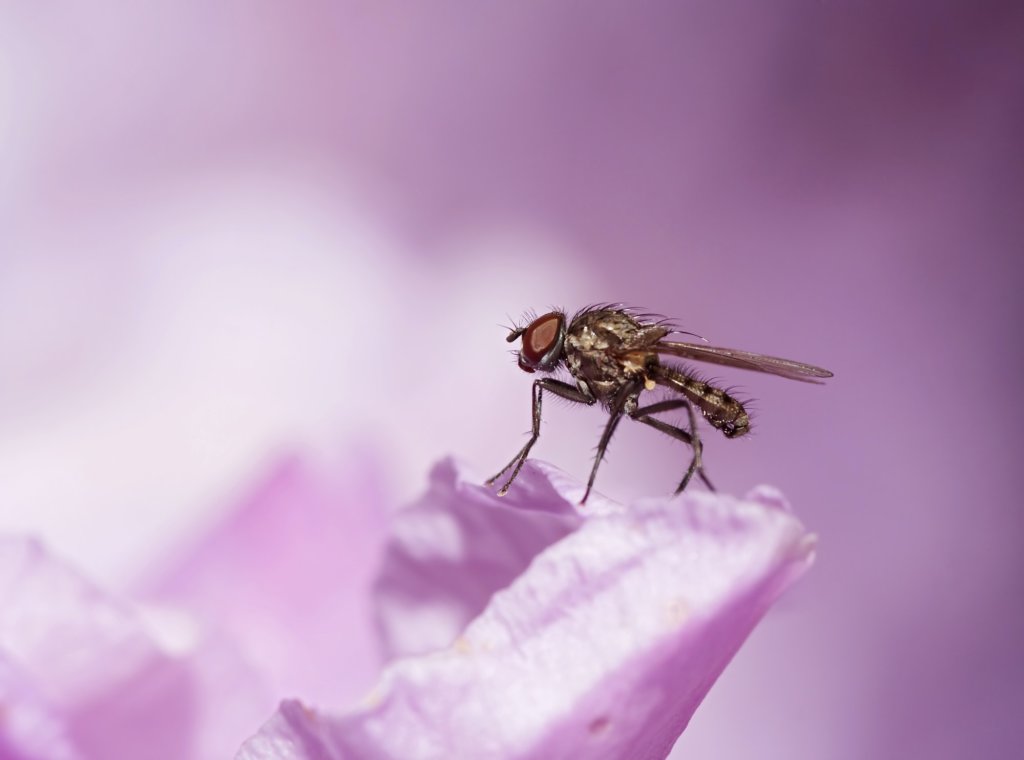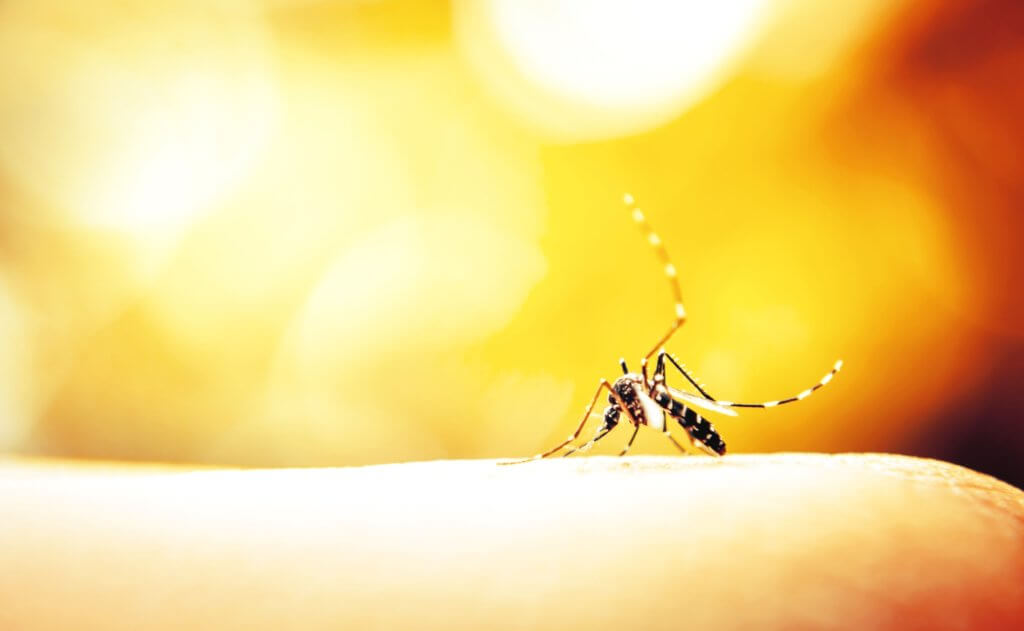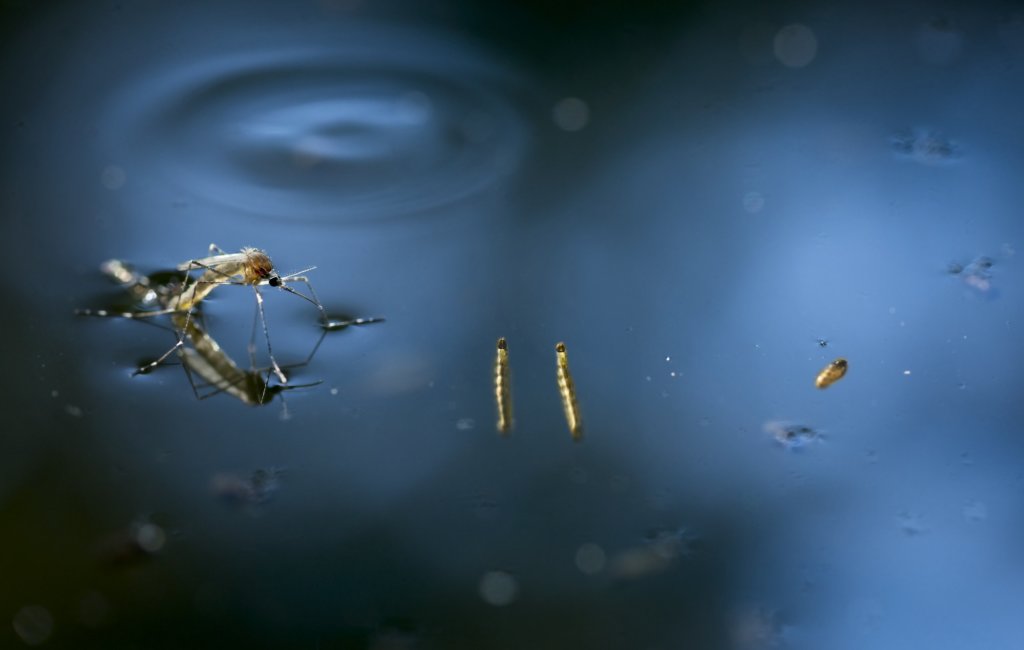Today we are going to be discussing how to get rid of gnats and Mosquitoes. So, how do you get rid of gnats? And how do you get rid of mosquitoes?
There are a lot of endearing and enjoyable qualities about the Summer and Fall months. The weather allows for time spent outdoors before the Kansas City winter chill arrives. Many of your favorite produce items start to come into season and grace the marketplace stalls and your kitchen counters. However, it’s these positives that make the pests that come with them even more irritating, and no pests represent this better than gnats and mosquitoes. Let’s get rid of gnats and mosquitoes.
Each is annoying in a unique way, but together they represent a swath (should be swath) of troubles that come about in some of our favorite times of the year. Today, we’ll break down each of these pests, what draws them in, how to prevent their presence, and how to rid yourself of them definitively.
Gnats
What Are Gnats?
Gnats are not exactly an exact species or taxonomic group. Rather there are many species of insects that resemble and behave like what we’ve come to refer to as gnats. Generally, gnats are a type of two-winged fly that is small in size.

Another recognizable trait is that they can often be observed in large swarms.
These swarms are how gnats mate with one another, occurring fairly frequently given gnats’ short lifespans. You’ll likely find yourself flustered after walking through such a swarm around sunset.
Regionally, you can find variations of gnats that may bite or not bite, live in water or congregate in marshland, or trouble farmland.
What Are Gnats Attracted To?
The consensus surrounding what attracts gnats is that they are drawn to decaying organic matter. This can span a wide range of items including your household garbage, or even dying plants. Here’s a list of common items found in and around the home that could attract gnats:
- Fruits and vegetables, especially when overripe.
- Sugary liquids like sweet tea or soda.
- Mild acids like vinegar or wine.
- Dead garden plants.
- Sewage or sewage access pipes.
- Overly watered plants that have developed fungus.
- Dead rodents.
How To Identify A Rodent Problem
What Scents Do Gnats Hate?
Gnats are tiny, annoying insects. They buzz around your face, making it hard to focus on anything else. Luckily, there are smells that they hate. Using these scents can help keep them away.
First, gnats hate the smell of vinegar. You can use apple cider vinegar to your advantage. Put some in a small dish and add a few drops of dish soap. This traps the gnats and keeps them away from you.
Another scent gnats dislike is peppermint. You can use peppermint oil in a diffuser or make a spray with water and a few drops of the oil. Spray it around windows and doors to keep gnats out.
Lavender is also effective. Gnats can’t stand the smell of lavender, so consider planting lavender in your garden. You can also use lavender oil in a spray bottle with water. Spray it in areas where gnats are a problem.
Lemon is another scent that drives gnats away. Lemon-scented candles or sprays work well. You can even rub a bit of lemon juice on your skin to keep them at bay.
Lastly, try using garlic. Gnats hate the strong smell of garlic. Place garlic cloves in areas where gnats are common. You can also make a garlic spray by mixing crushed garlic with water.
Using these scents can help you enjoy your time outside without being bothered by gnats.
How Can Eye Gnats, A Type Of Non-Biting Gnat, Be Controlled?
Eye gnats, a type of non-biting gnat, can be controlled through various methods. While they are rarely a problem indoors, they can be quite troublesome outdoors, especially in the spring and fall seasons. Female eye gnats are attracted to the moisture found around the eyes and nose, making them particularly annoying. Although complete eradication may be challenging, there are several effective ways to control eye gnat populations.
- Reduce Moisture And Organic Matter: Female eye gnats lay their eggs in or on moist soils that contain organic matter. By reducing these favorable conditions, one can discourage their breeding and subsequent population growth. This can be achieved by eliminating standing water, fixing leaky faucets, and ensuring proper drainage in outdoor areas.
- Personal Protection: When spending time outdoors in areas where eye gnats are prevalent, wearing protective clothing such as hats and long-sleeved shirts can help mitigate their annoyance. Additionally, using protective eyewear or wearing sunglasses can create a physical barrier, preventing them from reaching the eyes.
- Traps: Deploying specially designed traps can help control eye gnat populations. These traps are typically designed to lure and capture the gnats, reducing their numbers significantly. It is important to place these traps in areas where eye gnats congregate, such as near moist and organic matter-rich environments.
- Chemical Control: While insecticides are generally not very effective against eye gnats, some formulations can provide temporary and partial relief. Insecticides specifically designed for gnat control can be sprayed in outdoor spaces. However, it’s crucial to follow the instructions carefully and use them judiciously to minimize any potential harm to beneficial insects and the environment.
- Integrated Pest Management: Employing integrated pest management techniques can be effective in controlling eye gnats. This approach involves a combination of various methods, such as practicing good sanitation, removing breeding grounds, using physical barriers, and applying insecticides when necessary. By integrating these strategies, one can effectively reduce eye gnat populations over time.
It’s important to note that eye gnats can vary in prevalence depending on the geographical area, climate, and seasonal conditions. Regular monitoring of their presence and diligent implementation of appropriate control measures will aid in managing and minimizing the annoyance caused by these insects.
How Can Non-Biting Gnats Be Controlled Outside?
Non-biting gnats, such as fruit flies, fungus gnats, phorid flies, and moth flies, can be effectively controlled outdoors by taking certain measures. Here are several methods to control non-biting gnats outside:
- Eliminate Moist Areas: It is crucial to remove moist outdoor sites that provide a favorable environment for gnats to breed. This may include getting rid of outdoor potted plants, clearing clogged roof gutters and downspouts, ensuring proper drainage near downspouts, addressing condensation pooling near air conditioners, removing thick mulch, compost piles, and accumulated grass clippings, leaves, and garden debris.
- Fix Leaky Pipes: Repair any exterior sites with plumbing leaks that result in the accumulation of sewage or water. This is especially important as stagnant water can attract gnats. Pay particular attention to plumbing issues that allow the deposition of sewage and fresh water to accumulate on the soil in crawlspaces of homes or other buildings.
- Sewer Maintenance: Properly maintain sewage treatment facilities to prevent moth flies from becoming a nuisance to nearby homes or buildings.
- Clean Up Fallen Fruit: Do not allow fallen fruit to accumulate on the ground, as this serves as an ideal breeding ground for fruit flies. Additionally, fallen fruit may also attract yellow jackets, which feed on it.
- Use Bug Light Bulbs: Consider replacing standard exterior light bulbs with low voltage bug light bulbs that are less attractive to flying insects. This can help minimize the presence of gnats around your property.
- Avoid Overwatering: Be mindful of overwatering outside plants and lawns, as excessive moisture can create breeding grounds for gnats. Properly regulate the watering to keep the soil from becoming overly saturated.
- Cover Garbage: Keep garbage cans and other trash containers clean and covered at all times. This will prevent gnats from being attracted to the odors and potential food sources.
By implementing these measures, you can effectively control non-biting gnats outside, reducing their population and preventing them from entering your home or business.
How To Prevent A Gnat Infestation
Preventing a gnat infestation is a practice of superb cleanliness. Gnats breed in standing water or even soil that has an above-average moisture content. So while there may not be much you can do to prevent the weather, there are steps you can take to ward off a swarm before it takes root and unleashes its wrath of annoyance in your home or business.
Gnat Prevention Quick Tips
- Make sure to eliminate areas where water can easily pool after a rain shower, or where a consistent leak is creating unnecessary moisture. This will limit the availability of breeding grounds for gnats.
- Stay vigilant in keeping your home clear of food waste, overripe produce, or houseplants that have one foot in the grave. Your dining room bowl of fruit might be aesthetically pleasing and an easy snack receptacle, but gnats find it just as alluring.
- Be sure to clean bathrooms, laundry spaces, and any other areas where your own connects to the sewage system. Keep an especially close eye on drains and consider using a mild drain cleaner from time to time as some species of gnats tend to nest in sewage drains.
How To Get Rid Of Gnats
Once gnats have taken root in your home or business, it can feel like the walls are closing in. Don’t panic. There are tried and true methods to eliminate gnats from your space.
First, identify where the biggest areas of activity are. Do you seem to be pestered most in the kitchen or the bathroom? Do you have trouble sleeping because of gnats or wake up with bites? When you’ve found what the biggest pockets of activity are you can start to lure them in.
Picking a lure for your household infestation solution is a bit up in the air. Many people promote and support various substances that are a sure way to grab gnats attention. For instance, one solution is to place a small bowl or glass out in the area filled with soda, juice, or wine. Place plastic wrap over the container and then poke a small hole in the plastic with a toothpick. The gnats should be attracted in, but not be able to leave.

Others support this method, but with a mixture of liquids and chemicals including dish soap which helps drown the gnats.
Other individuals may use flypaper or other store-bought traps, but the only definitive way to remove a serious gnat infestation and to prevent any further development is to call on the knowledge of your local pest control professionals.
At Gunter Pest & Lawn, we’ve been handling these tiny pests for decades, and have perfected our approach to addressing each home and business owner’s needs for gnat and fly control.
Mosquitoes
What Are Mosquitoes?
“Mosquito” is the term used to describe over 3000 varieties of flying insects, primarily which seek out nutrients by biting other animals and absorbing nutrients from their blood. While numerous species of mosquitoes don’t bite, the ones humans are most often concerned with do.
Mosquitoes use an extremely thin mouth organ called a proboscis to feed. Female mosquitoes are the only members of most species that pierce the skin of animals to drink blood. Most males can’t breakthrough as they are not looking for nutrients to foster the growth of their offspring. Instead, these bugs join with the female in consuming nectar through their proboscis.

Mosquitoes represent a major annoyance across the globe in the areas they occur, not just because of the reactions and irritation to their bites, but also because mosquitoes can serve as vectors, insects that carry diseases from one being to another. Some of the most prolific viruses and other diseases that have affected the developing world, like West Nile Virus and Malaria, have been carried by mosquitoes.
What Are Mosquitoes Attracted To?
Unlike gnats, which primarily seek out materials that they wish to feed on based on decay. Mosquitoes can be attracted to humans by a wide variety of attributes and activities. In general, mosquitoes will likely seek out any spaces where humans or animals live and congregate, but here are a few things that mosquitoes might consider before biting you:
- Your smell, whether it be especially fragrant, floral, or unpleasant.
- Certain foods you’ve consumed.
- The clothes you’re wearing. They prefer darker colors or shades that might resemble flowers (Remember they also feed on nectar).
- Your internal heat.
- Skin tone.
What Scents Do Mosquitos Hate?
Mosquitos are more than just a nuisance. They can carry diseases and leave itchy bites. Thankfully, there are scents that mosquitos hate, which can help keep them away.
One of the most well-known mosquito repellents is citronella. Citronella candles and oils are great for outdoor areas. You can also use citronella plants in your garden.
Eucalyptus is another scent mosquitos can’t stand. Eucalyptus oil mixed with water makes an effective spray. Use it around your home or on your skin to keep mosquitos away.
Lavender isn’t just for gnats. Mosquitos hate it too. Lavender oil can be used in diffusers or mixed with water for a spray. Lavender plants in your garden also help keep mosquitos at bay.
Peppermint works well against mosquitos as well. Use peppermint oil in a diffuser or make a spray with water and a few drops of the oil. You can even apply diluted peppermint oil to your skin.
Basil is a great herb to grow in your garden. Mosquitos hate its smell. Having basil plants around your outdoor seating areas can help reduce mosquito problems.
Lastly, try using cloves. Mosquitos find the scent of cloves very unpleasant. You can make a clove spray by mixing clove oil with water or place cloves around your home.
Using these scents will help you enjoy your time outdoors without the worry of mosquito bites.
How To Prevent A Mosquito Infestation
Mosquitoes share one major commonality with gnats in that they both breed in standing pools of water. This is why you’ll often find a surge in mosquito activity the day after a heavy rain shower. Just like with gnats, it’s imperative to take whatever steps you can to eliminate pools of standing water and keep spaces dry.
It’s also important to take action when you first start to see mosquitoes. If you see one while working in the garage, take the extra time to dispose of it. You could save yourself a lot of future annoyance.
Find yourself in a space where controlling the water content, cleanliness, or mosquito population isn’t practical like out on campgrounds. It might be in your best interest to invest in some mosquito repellent, candles, and even sleeping nets. These methods have been shown to help curb difficulties experienced by campers out in nature.
How To Get Rid Of Mosquitoes Outside In Your Yard
If you find that ever-growing levels of mosquitoes are plaguing your home, business, lawn, or general area the best thing to do is to call a professional. Given the wide areas that mosquitoes can propagate from, addressing the issue individually may not prove to help.

As pest control professionals, our Gunter Technicians can employ a variety of treatment and repellant options designed to drastically lower mosquito activity and reclaim your spaces. We even offer all-natural mosquito treatments that help keep the environment and pets safe while we try and deal with nasty pest problems.
Now, Let’s Explore Five Additional Ways To Get Rid Of Mosquitoes In Your Yard
Win The War Against Mosquitoes: 5 Proven Strategies To Get Rid Of Mosquitoes Outside
Mosquitoes aren’t just a nuisance; they’re a health hazard. As you enjoy the great outdoors or relax in your backyard, employing effective strategies to keep these pests at bay is crucial. Beyond the usual tips, here are five additional, effective ways to safeguard your space against mosquitoes.
1. Introduce Natural Predators
Enhance your garden’s biodiversity by welcoming natural mosquito predators. Birds, bats, and certain fish species, such as Gambusia, or “mosquito fish,” can significantly reduce mosquito populations by feeding on larvae and adult mosquitoes.
2. Embrace Essential Oils
Essential oils, particularly eucalyptus, lavender, and citronella, have been shown to repel mosquitoes. Create a natural repellent by mixing these oils with water and spraying around your outdoor living areas.
3. Cultivate Mosquito-Repelling Plants
Leverage nature’s own repellent by planting marigolds, citronella, lavender, and basil in your garden. These plants naturally deter mosquitoes with their strong fragrances, adding beauty and protection to your landscape.
4. Install Mosquito Traps
Mosquito traps lure, trap, and kill mosquitoes. By emitting substances that attract mosquitoes, such as carbon dioxide, these devices can effectively reduce the local mosquito population.
5. Regularly Apply Insect Repellent
For personal protection, regularly applying EPA-approved insect repellents containing DEET, picaridin, or oil of lemon eucalyptus can provide long-lasting defense against mosquito bites.
Incorporating these strategies into your mosquito management plan can significantly reduce your exposure to these pests, making your outdoor experiences more enjoyable and safer. Stay vigilant and proactive in your efforts, and you’ll create a more peaceful and mosquito-free environment.
8 Tips For Getting Rid Of Mosquitoes This Summer
For More Information Check Out This Mosquito Infographic And Share With Your Friends
Summer Bugs To Watch For
Mosquitoes
FAQ for Mosquito and Gnat Control
Q: How Do You Kill Mosquito Larvae in a Pool?
A: To effectively kill mosquito larvae in your pool, you can use larvicides specifically designed for this purpose. These larvicides are available in various forms such as tablets, granules, or liquid formulations. Adding them to your pool water according to the manufacturer’s instructions will help eradicate mosquito larvae without harming other aquatic life. Additionally, maintaining proper pool sanitation, including regular cleaning and chlorination, can prevent mosquito larvae from thriving in the first place.
Q: What Should I Burn to Get Rid of Mosquitoes?
A: Burning certain materials such as citronella candles, mosquito coils, or specific types of oils like eucalyptus or lavender can help repel mosquitoes. These substances emit odors that mosquitoes find unpleasant, thereby discouraging them from coming near. However, it’s essential to use these methods in well-ventilated areas and follow safety precautions to avoid fire hazards or respiratory issues.
Q: Do Ladybugs Eat Mosquitoes?
A: While ladybugs are known for feeding on aphids and other small insects, they are not significant predators of mosquitoes. Ladybugs primarily consume plant-eating pests like aphids, mites, and scale insects. While they may occasionally consume small mosquito larvae, they are not considered a reliable or effective method of mosquito control.
Q: What Temperature Kills Gnats?
A: Gnats are typically more active and abundant in warmer temperatures, but extreme heat can also kill them. Temperatures above 90°F (32°C) can be lethal for gnats, causing dehydration and death. However, it’s essential to note that controlling gnats solely through temperature regulation may not be practical or effective in all situations, as other factors such as humidity and breeding sites also influence gnat populations.
Q: Can Gnats Live in Your Hair?
A: Gnats are attracted to moisture and carbon dioxide, which can lead them to hover around people, including their hair. While gnats may momentarily land on or fly around your hair, they do not typically take up residence or establish nests in human hair like some other pests. However, gnats can be a nuisance when they fly near your face or hair, especially in outdoor settings.
Q: Do Ladybugs Eat Fungus Gnats?
A: Ladybugs primarily prey on aphids and other soft-bodied insects, but they may occasionally consume fungus gnats if other food sources are scarce. However, ladybugs are not considered a reliable solution for controlling fungus gnat infestations. Other methods, such as using biological controls like predatory nematodes or applying insecticides targeted specifically at fungus gnats, may be more effective for managing these pests in indoor plant settings.
Conclusion
Don’t let gnats and mosquitoes ruin your Fall plans. Follow the prevention tips we’ve provided above or give us a call if you’re experiencing a particularly bad infestation. We can help get rid of these annoying little pests quickly and efficiently. After reading this we hope you know how to Get Rid Of Gnats And Mosquitoes. Please contact Gunter Pest & Lawn to start a new service.
Be Sure To Check Out Some Of Our Services:
Silverfish — Fleas — Spiders — Bed Bugs








